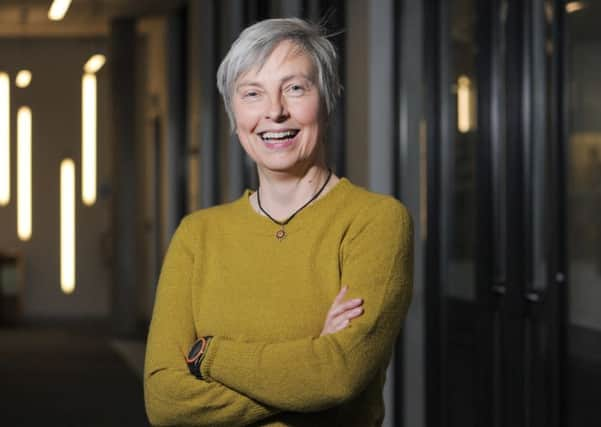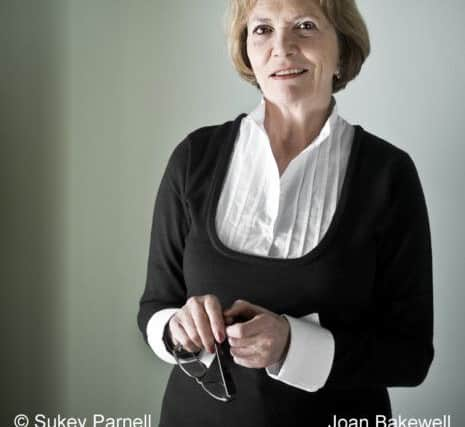Put down the anti-wrinkle cream - why women over 50 need to embrace the ageing process


Earlier this year, a friend told Jayne Raisborough how brave she thought she was. For a moment she was confused. The Leeds Beckett University professor hadn’t recently completed any great physical challenge and she couldn’t readily think of any personal tragedy she had overcome. Then it struck her.
“She was referring to my hair and the fact I had let it go grey,” says Jayne, who recently marked her half century. “There are lots of things I would describe as ‘brave’, but not dyeing your hair isn’t one of them.”
Advertisement
Hide AdAdvertisement
Hide AdJayne, who works in the university’s school of cultural studies and humanities had already been thinking a lot about the ageing process and the idea that women are made to feel constantly dissatisfied with how they look.


“I had been watching a lot of those reality makeover shows on television and it just struck me that women are forever being told they can look better. Then I was flicking through a glossy magazine and there was an article with the depressing headline, ‘When is too young to start botox?
“At the time I was coming up to my 50th birthday. I felt fine about getting older, but in the face of all this talk of anti-ageing creams and cosmetic surgery, you can absolutely see why some people come to dread their next birthday.”
Estimates vary, but the global anti-ageing industry is now worth around £216bn a year and yet while women buy more and more face creams which purport to be able to erase lines and lift sagging chins it hasn’t made use any happy. According to research from Age UK, 67 per cent of over 50s said they thought advertising portrayed them negatively and 75 per cent said they didn’t relate to advertising at all.
Advertisement
Hide AdAdvertisement
Hide Ad“Most of what we know about getting older comes from the media - and much of that is telling us that we should be doing all we can to look youthful,” says Jayne. “We should be looking 10 years younger, stopping the appearance of fine lines, dyeing our hair, whitening our teeth and we should be considering cosmetic surgery for all the bits that potions and lotions can’t reach.


“Women over 50 spend an average of £2,000 per year on anti-ageing creams and while we can guess what this preoccupation with youthfulness is doing to our purses, I started to wonder what is it doing to our self-esteem, to the ways we feel about our bodies and faces.”
On a mission to prove that there is not only life over 50, but that things can in fact get better not worse with age, Jayne set out to interview 60 women aged between 40 and 101 years old and she went armed with one key question - tell me what is good about getting older?
“I felt that anti-ageing was a poison that without us realising had dripped into all aspects of our lives. I just thought if I joined forces with other women together we might be able to find the antidote.
Advertisement
Hide AdAdvertisement
Hide Ad“What struck me was how different generations felt about . The women in their 40s said they were looking forward to have more time and not feeling quite so frazzled. In their 50s and 60s, they talked about having more confidence and freedom and really not caring what other people thought. One CEO of big pharmaceutical company summed up that feeling. She had worked incredibly hard to get to where she was, but now for the first time she said that if she had to walk tomorrow she wouldn’t worry.”
There were other things too. Sixty two year old retired journalist Amanda, who had recently started learning how to fly a helicopter after her husband had bought her a trial flight, said: “As you get older you no longer feel so competitive. You can do things for yourself. I no longer think ‘I have to be good at this or I will have to stop’. I am aware that I am a silly old fool who may not ever get the hang of this, but why should that stop me?”
Then there was Victoria, a 76 year old theatre director, who said that the best thing about getting older is the years of experience amassed.
“When I was younger it was all about passion. Then when I got to middle age I began to understand about research and finding out about things. The lovely thing about getting older is that you get to combine the two. How is my life at 76? Well, I would be wrong if I didn’t say it is sometimes difficult, sometimes lonely, but I am finding there are qualities to getting older that I never expected. I want to share what I have learned. I just want to put it out there.”
Advertisement
Hide AdAdvertisement
Hide AdThe oldest person Jayne interview was 101, whose only regret was that she had “faffed about” a little too much when she was younger.
“I came out of each interview feeling completely elated. What they said suggests that there is a lot about age that we can celebrate and that it isn’t something to be not hidden away or masked. As they got older, women spoke about having more confidence, freedom from the male gaze, ability to take risk, appreciating friends and family more and generally growing to like oneself.
“All of these women refused to be written off or see signs of age as weakness. Rather they embraced them for they were, which was hard earned. These women were determined to enjoy life and they wanted to see their reality reflected in the media which it absolutely isn’t.”
Ahead of next month’s Older People’s Day, some of those stories have now been made into a short film which will be shown as part of event in Leeds today where Jayne will discuss her research.
Advertisement
Hide AdAdvertisement
Hide Ad“Ageing, especially advanced age, can bring more challenges like loneliness, illness, disability and a growing sense of frustration when shop assistants look straight through,” admits Jayne. “However, on the whole these women regarded ageing as a gift and found ways of working around some of those challenges like getting online, making more contact with others, refusing to be addressed as dear and getting involved in politics. One 86 year old I met had just started painting abstract art.
“The truth is few of the problems of age come from the way we look rather the way we are looked at - it is the stereotypes of older women that are the problem. The secret of age doesn’t come in having fewer wrinkles, but from deeper connections with others and a deeper appreciation of life., developing new passions and staying interested in life.
“As one of the women in the film says, ‘there is so much more to being older if only society could see it. The first step may be to stop buying those magazines, lotions and potions and brave the world without our face on.”
She might have a point. When asked what she enjoyed about getting older 40-something Helen said candidly, “I feel comfortable in my skin, even if it’s not as tight as it once was.”
Is There Life after 50? You Better Believe It! Women Celebrate Getting Older, Leeds Town Hall, today, 12.30pm.